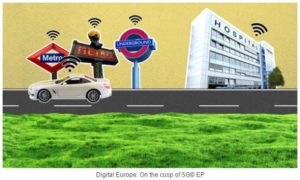Digitising European industry requires safeguards against a divided society and more legal certainty, whilst an EU spectrum strategy should boost 5G technology.
Access to telecommunications should be equal across the EU, whilst avoiding an unequal digital development in industries such as transport and tourism, MEPs say in a resolution voted on Thursday. Artificial intelligence and robotics demand clear rules on safety and liability.
 Schools need to teach digital skills in order to close the “digital divide” and ensure a smooth transition to a smart economy. Public authorities must include cybersecurity requirements in public procurement.
Schools need to teach digital skills in order to close the “digital divide” and ensure a smooth transition to a smart economy. Public authorities must include cybersecurity requirements in public procurement.
Seizing the opportunities of 5G
To avoid the delays experienced during the rollout of 4G, member states need to work better together on the spectrum strategy, said MEPs in a separate non-legislative resolution, also voted on Thursday.
2.3 million
5G deployment could create 2.3 million jobs directly and indirectly in the EU (source: EU Commission).
5G is more than a mobile revolution, it is an innovation engine, bringing change across industries, developing business models, creating new quality networks and high-quality services, connecting new industries and improving customer experience. We need a simple legal framework, flexible models for co-investments, and long-term certainty and predictability.
The EU could become a global leader in digitising industry. But we have to move forward decisively and together to cope with this transformative challenge. Industrial leadership is not guaranteed. We must not only master the technology and new business models, but also be ready to take on societal responsibilities. As every good economic policy, digitisation has to be of, for and by the people.